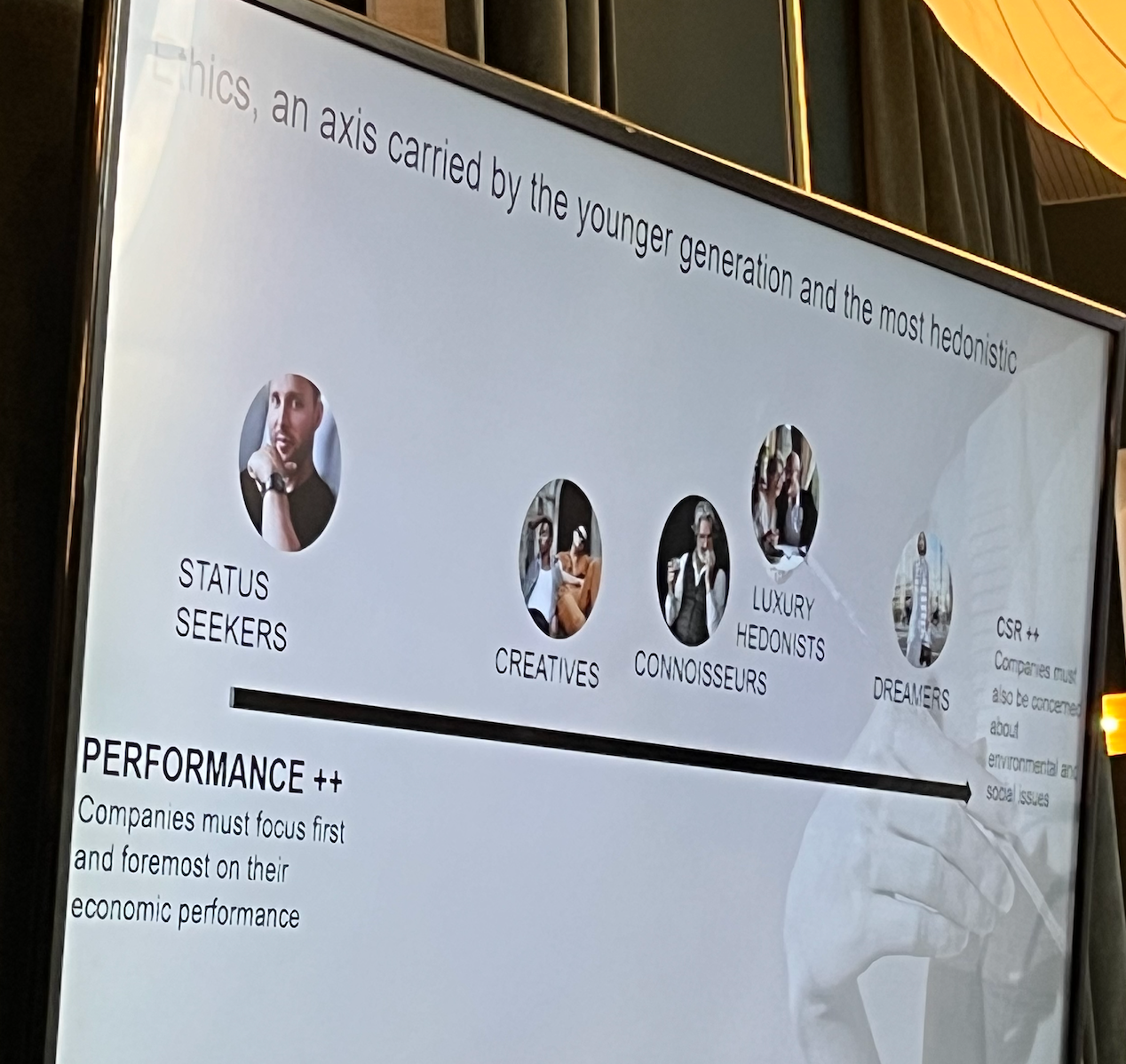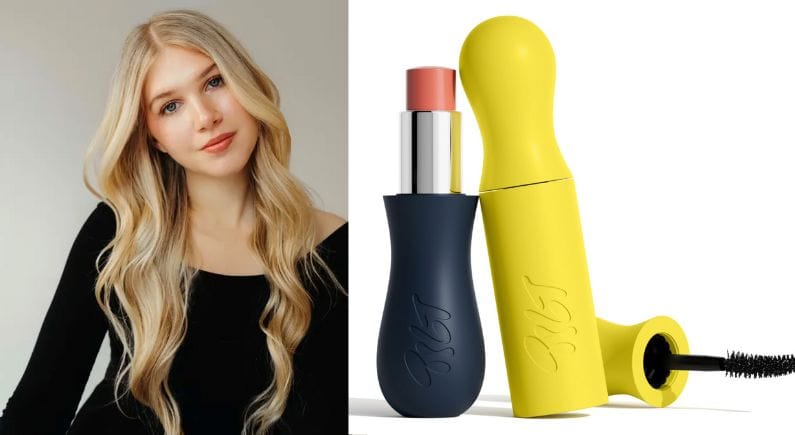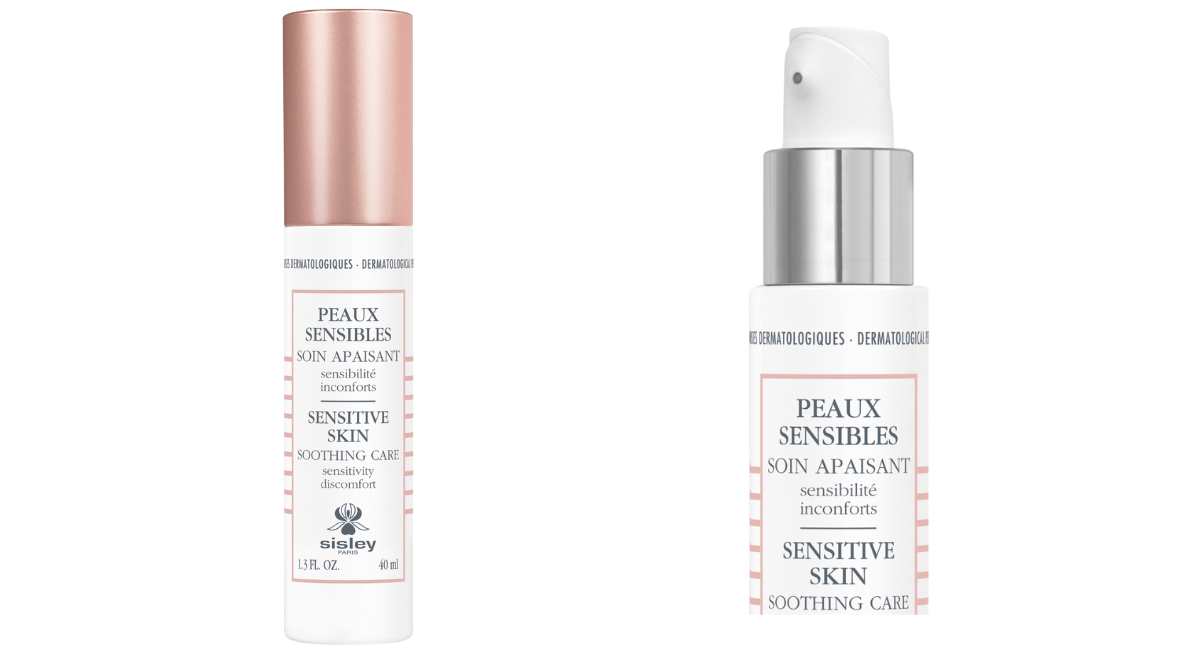
Do luxury consumers care about sustainability?
A recent survey from IFOP (Sociovision) and Luxus+ was released at the Luxeperience event in Paris, revealing the updated profiles of luxury buyers and providing insights into why and how they purchase luxury items. From luxury experiences to physical products, consumers are seeking authenticity, creativity, and interactivity.
What defines the luxury customer
The international study surveyed 4,535 luxury customers across seven key markets (France, the United Kingdom, Spain, Germany, the United States, China and Japan). It defined five profiles demonstrating that luxury consumers no longer form a homogeneous group.
Five profiles are emerging:
- Connoisseurs (19%), who value the transmission and mastery of expertise.
- Status Seekers (18%), who see luxury as an affirmation of self and success.
- The Hedonists (23%), for whom luxury is a reward and a breath of fresh air.
- The Dreamers (18%), who seek above all emotion and escape.
- The Creatives (22%), young, curious, in search of inspiration and uniqueness.
Underlying this is a clear trend: luxury is experienced rather than owned. Hedonists and Creatives now dominate the luxury scene, imposing a more sensory, mobile and emotional vision.
Drivers to purchasing luxury
The study reveals five major drivers of contemporary luxury. From status to inspiration or escapism, gratification and investment, buyers are driven by very different reasons:
- Status: demonstrating success and distinguishing oneself socially
- Inspiration: nurturing creativity and personal identity
- Escapism: treating oneself to a moment out of time, far from everyday life
- Gratification: rewarding oneself, indulging oneself
- Investment: focusing on value and sustainability.
Emotion is the new currency of luxury. Far from the clichés of a static world, luxury now reflects a society in motion, comprising curious and demanding individuals in search of meaningful experiences.
Product or experience: a shifting balance
While 54% of customers still favour the product, 46% now prefer the experience. The act of purchasing is no longer simply about ownership; it is part of a desire for emotion, memory, and connection.
The younger generation is inventing a more fluid form of luxury, where travel, gastronomy, and creativity are just as valuable as an iconic handbag.
Which luxury profiles care about sustainability
Dreamers do care about sustainability, while on the other side of the spectrum, Status Seekers demand performance. Other profiles, such as creatives, Connoisseurs, and Luxury Hedonists, hover in the middle between performance and sustainability, meaning they are making a more personal choice.
Demographically speaking, Dreamers tend to have a more feminine profile. They seek luxury as a means to escape reality and enjoy exceptional experiences. They also enjoy discovering new worlds that stimulate their imagination. They are also concerned about international news and their own future.
On the other hand, Statuts Seekers have a more masculine profile and are overrepresented in the under-35-year-old segment. They buy luxury items to get noticed in society and showcase their social status. They own high-quality products that enhance both their appearance and personality. They lead a full life with ambitious projects and a very pronounced work ethic.

What about Gen Z
Providing insights on Gen Z, Dr Estelle Dihn, CEO of Attixs Global Collection, indicated that 52% of millennials and Gen Z would choose a restaurant based on the social media experiment, which means the ability to share on social media.
And she reminded the audience that the luxury experience begins long before the purchase and also extends long after the purchase. Focusing on Gen Z, she also added that they don’t just want to own a product, but want to live a brand that is aligned with their values—sustainability, Social impact, etc.
Talking about the personalisation, which is key in the luxury sector, but indicating that customisation is not just about extreme personalisation, but also about co-creation. Indeed, Gen Z are looking for “authenticity, creativity and interactivity” with excellence, and humanity at the core.
Three challenges of a world in crisis
Faced with a world in crisis, the survey also revealed three main challenges for the future:
- Re-enchanting the physical experience in the digital age; customers remain attached to human contact, expertise and sensory experiences.
- Anchoring ethics and sustainability at the heart of brand narratives; environmental and social responsibility is becoming a pillar of image, driven by younger generations.
- Integrating artificial intelligence, already used by 67% of luxury customers, it is perceived as a useful lever for information, advice and customer relations.
Today, luxury is no longer content with simply seducing: it seeks to connect. Between heritage and innovation, it is creeping towards a horizon where experience becomes the new language of prestige.

